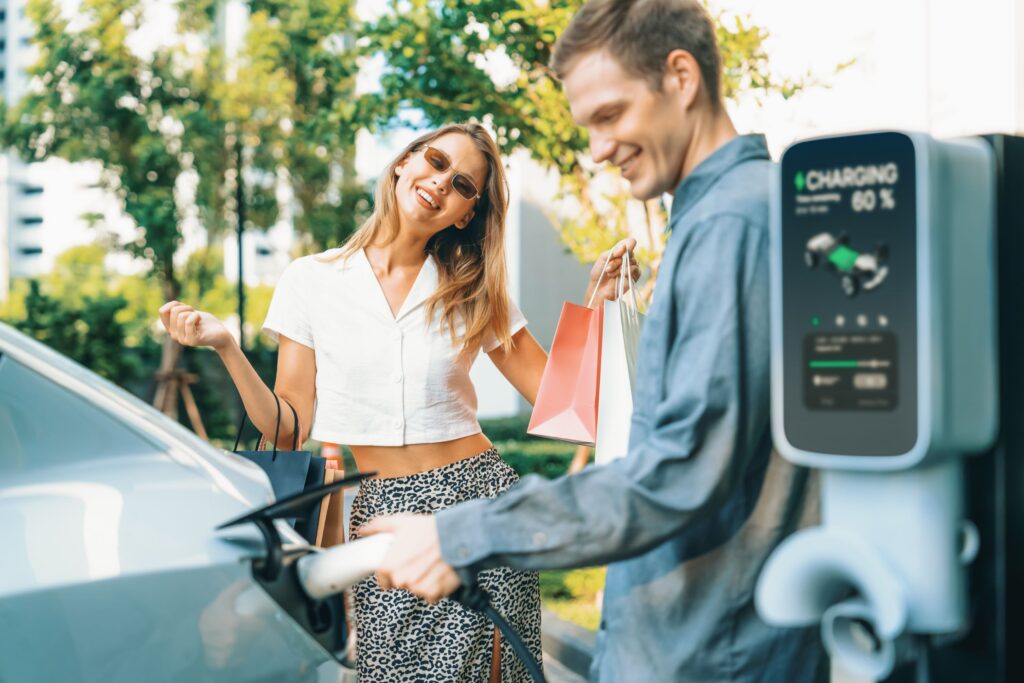Get to know. Dealership Redemption
Just purchased an EV car from our partnered dealerships? Enter your redemption code to redeem your subscription plan.
*Each Redemption is unique, please check with your car dealer on the subscription details.
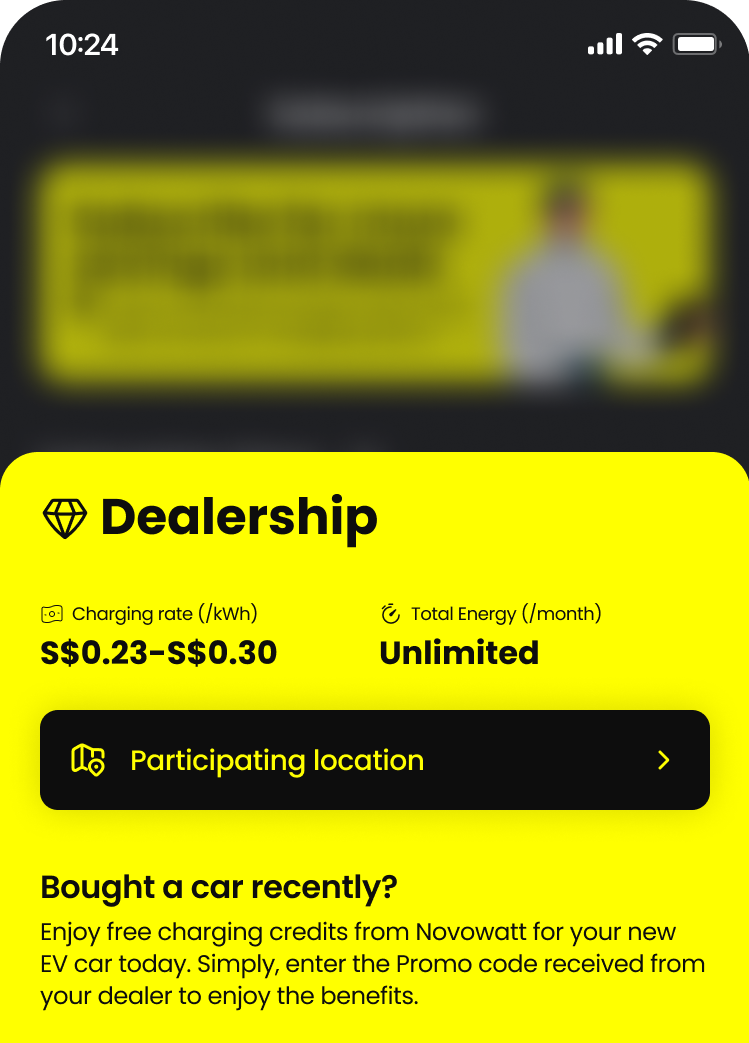
Dealership Redemption
Got a code from your car dealer?
Enjoy charging at electricity tariff rate, simply key in the code to redeem your subscription plan.
Charge more, spend less with our subscription plan.
*Dealership redemption is only available via code.
Subscription Details
Depending on your arrangement/deal with your car dealer. The subscription plan duration might varies.
Upon input of the redemption code - the subscription plan details will be displayed. *Any discrepancy please approach and enquire from the car dealer.
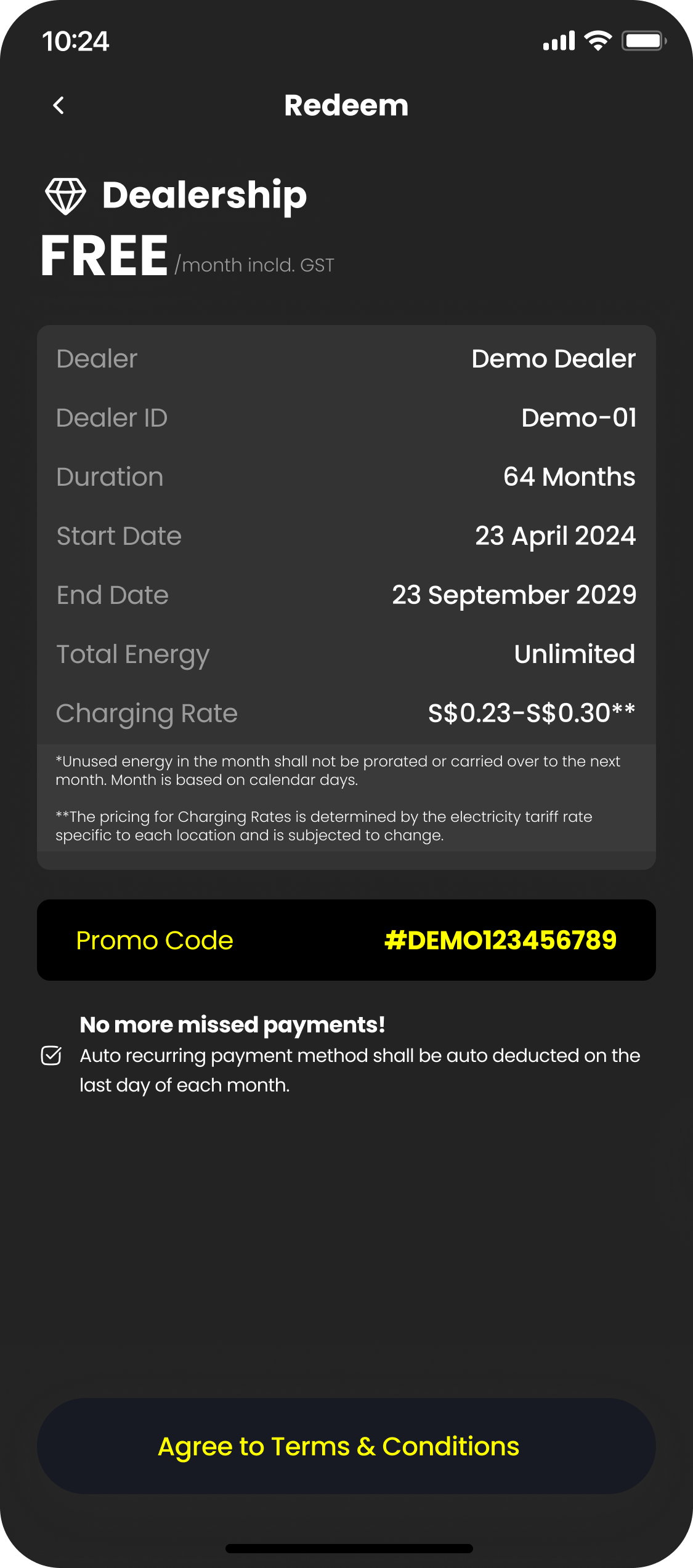
How to use?
Follow our video tutorial to find out more on how you can purchase, activate and use the plan when charging your car.
Simple to buy, activate and start
charging at the electricity tariff rate
Streamlined, end-to-end electric vehicle charging solutions tailored to your needs for hassle-free charging at home.
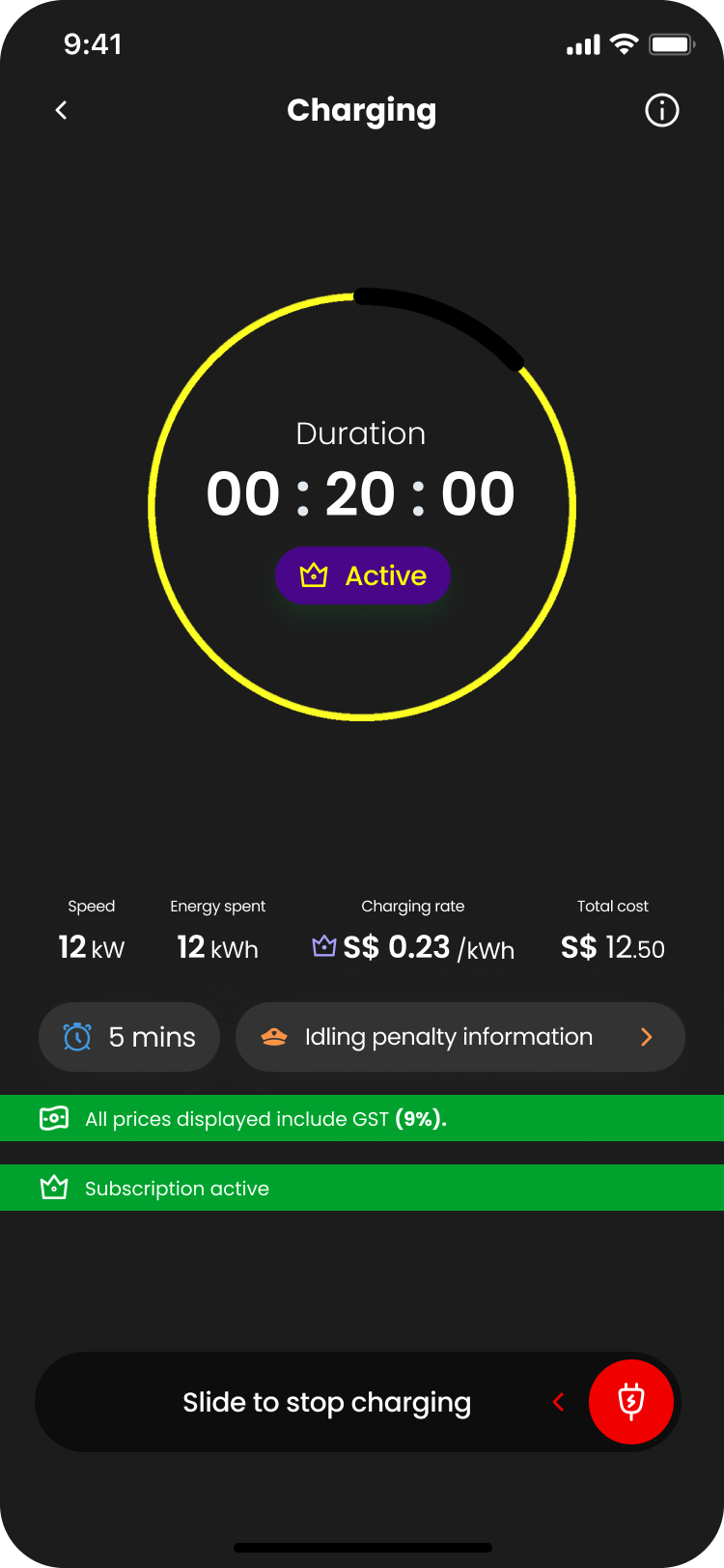
Fuss-Free Subscription
Once activated, simply charge normally as you should. The active subscription will update the charging price automatically when you charge.
*Please ensure that the location you are charging at is one of the participating locations for our subscription plan.
My Subscription
View your subscription plan details in the "My Subscription" page. Users are able check on their plan details as such:
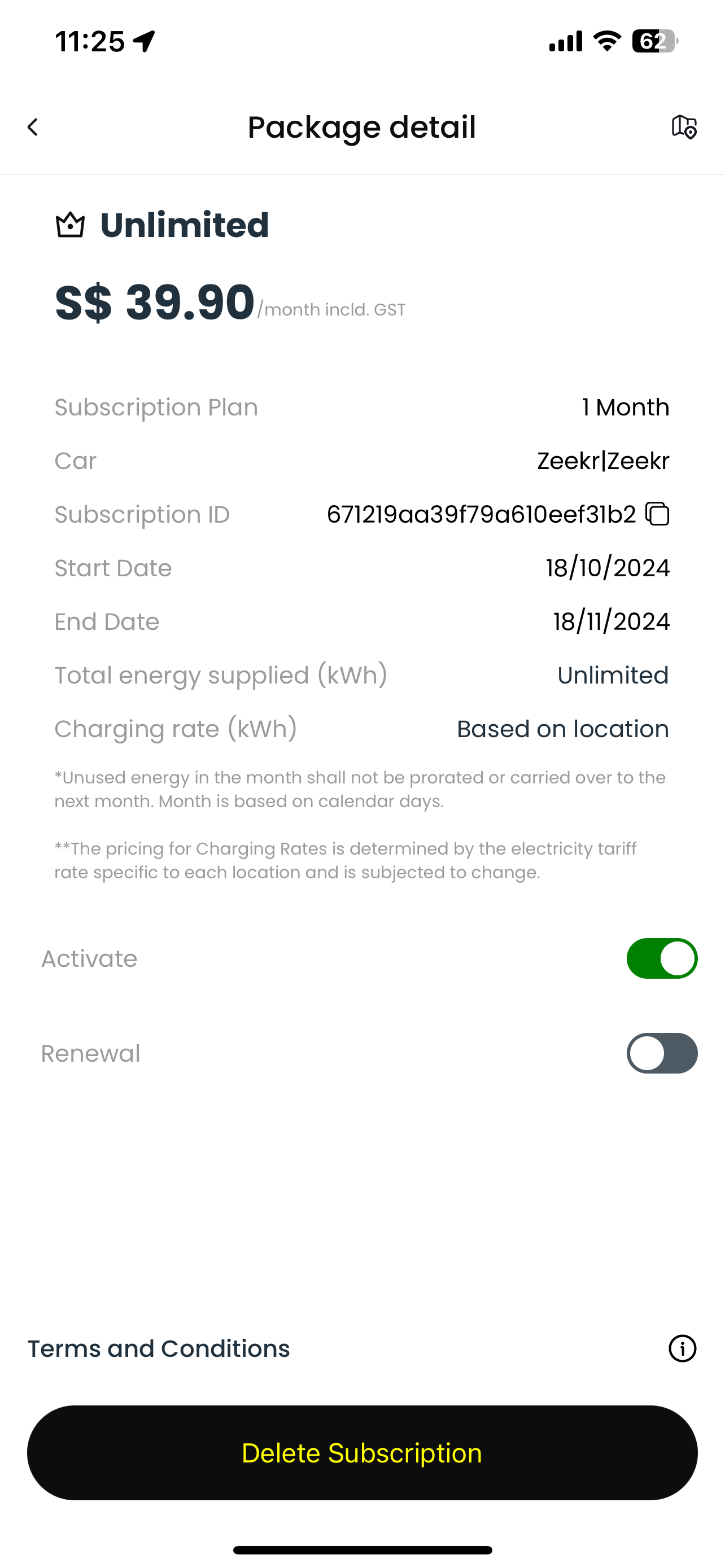
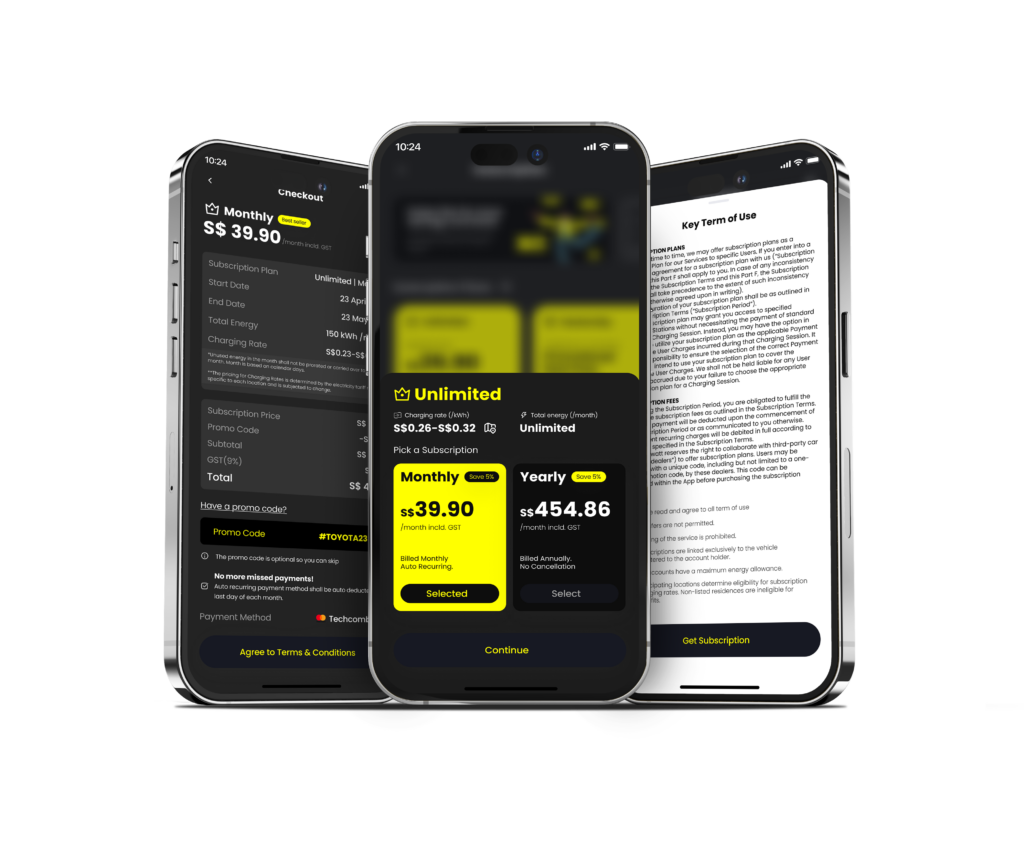
Grab your subscription plans today!
Charge at Electricity Tariff Rate. Enjoy saving when you charge at our participating locations.
Frequently Asked Questions (FAQ)
What type of Charger should i install? AC or DC?
The choice between AC and DC chargers depends on factors like charging speed needs, infrastructure availability, and convenience. AC chargers are slower but cost-effective for home use, while DC chargers offer faster charging for travel but are more expensive to install and operate.
What are the Installation Costs?
- Electrical Panel Capacity: If your home’s electrical panel doesn’t have sufficient capacity to support an EV charger, you may need to upgrade the panel, which can significantly increase installation costs.
- Distance from Electrical Panel: The distance between your electrical panel and the location where you want to install the charger can impact installation costs. Longer distances may require more wiring and labor.
- Permitting and Inspection Fees: Depending on local regulations, you may need to obtain permits and pay inspection fees for the installation of an EV charger.
- Site Preparation: If the installation site requires any preparation work such as trenching for wiring or installation of a mounting structure, these additional tasks will add to the overall cost.
- Electrician Fees: Hiring a licensed electrician to perform the installation is recommended for safety and compliance reasons. The cost of labor will depend on the electrician’s rates and the complexity of the installation.
- Equipment Costs: In addition to the charger itself, there may be additional equipment needed such as mounting hardware, conduit, and excavation.
Is it compatible with any car?
- In Singapore, electric vehicle (EV) chargers typically comply with international standards such as the IEC 62196 (Type 2) standard for AC charging or the CCS (Combined Charging System) standard for DC fast charging. These standards ensure compatibility with a wide range of electric vehicles.
- Most modern electric vehicles sold in Singapore, such as those from manufacturers like Tesla, BMW, Nissan, Hyundai, and Audi, are designed to be compatible with these international charging standards. However, it’s always a good idea to check the specifications of your specific electric vehicle to ensure compatibility with the charging infrastructure available in Singapore.
How long does it take to charge?
- AC Charging: Typically takes several hours, depending on the charging level and the size of the EV’s battery. 7.4kW AC chargers may take around 8-12 hours for a full charge, while 22kW AC chargers can reduce this time to 4-8 hours.
- DC Charging: Charging to 80% capacity can take as little as 30 minutes with DC fast chargers, depending on the charger’s power output and the EV’s compatibility. However, the time to reach a full charge may vary depending on the remaining battery capacity and charging speed.
Does different type of charger affects my charging speed?
In Singapore, the different types of chargers available affect charging speed as follows:
AC Charging in Singapore:
7.4 kW Charger: Commonly found in homes and some public charging stations. Provides moderate charging speed, adding approximately 25-30 kilometers of range per hour of charging.
22 kW Charger: Available at some public charging stations. Offers faster charging compared to the 7.4 kW charger, adding around 70-80 kilometers of range per hour of charging.
DC Charging in Singapore:
DC Fast Charger: Typically located along highways, major travel routes, and urban areas. Provides rapid charging, capable of charging an EV to 80% capacity in as little as 30 minutes. Power outputs vary, ranging from 50 kW to 350 kW or more.
In summary, AC chargers in Singapore, particularly the 22 kW variant, provide faster charging compared to lower-power AC chargers. However, DC fast chargers offer the fastest charging speeds, making them essential for long-distance travel and rapid top-ups.














